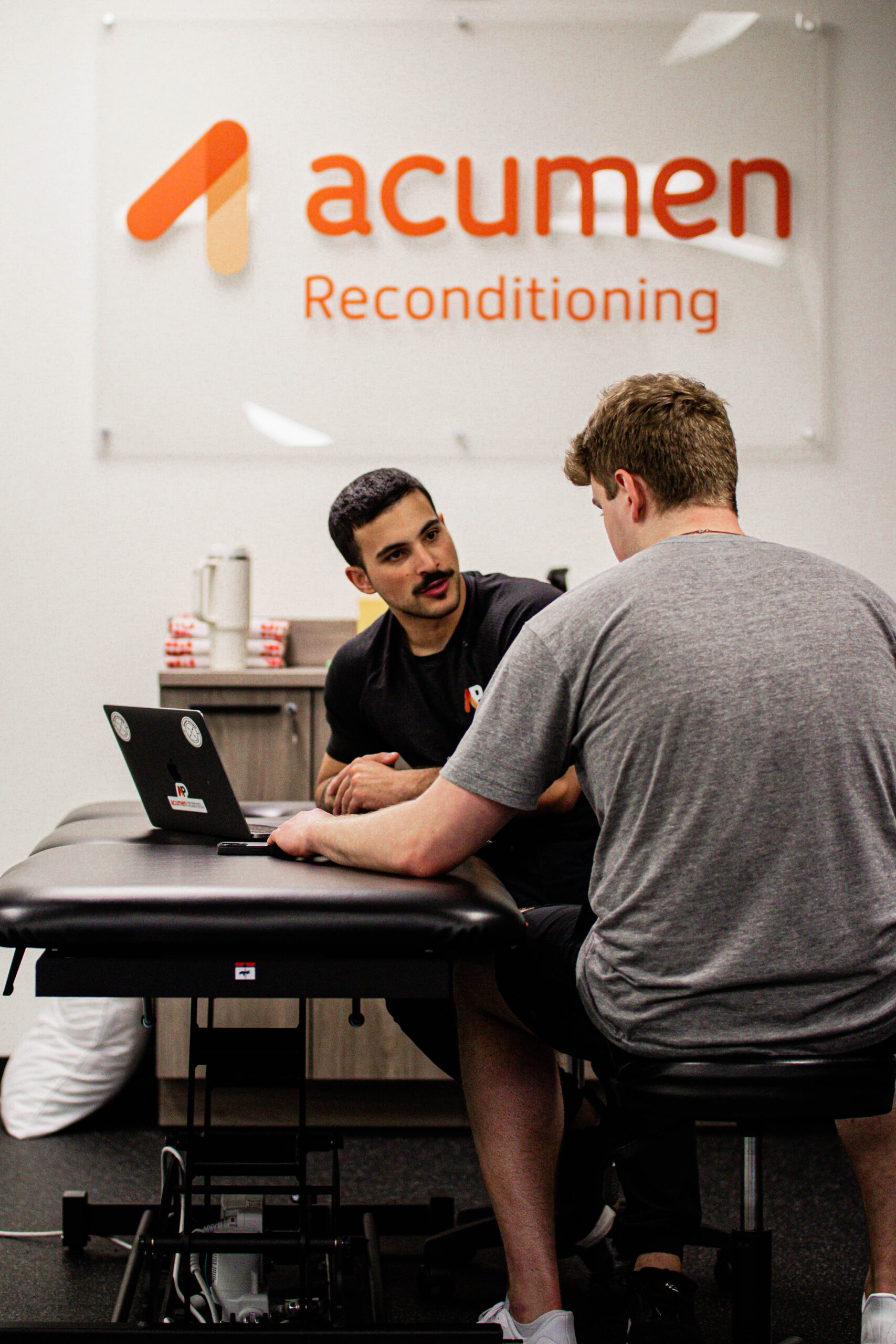Why Acumen Cancer Rehab?
Exercise and Manual Therapy: Managing the Side Effects of Cancer and Its Treatments
Exercise, alongside manual therapy, can be a safe and effective way to manage the side effects of cancer and its treatments. The great thing about both exercise and hands-on rehabilitation is that they can be utilized before, during, and after all types of treatments and surgeries, and are beneficial for individuals with any type of cancer.
Here are 4 key benefits of exercise and manual therapy for individuals with cancer:
- Decrease Treatment Side Effects
Both exercise and manual therapy have been shown to enhance recovery after surgery and help manage the side effects of cancer treatments like chemotherapy and radiation. Consistent movement and targeted hands-on therapy can address concerns such as muscle loss, weight fluctuations, decreased range of motion, neuropathy, and more. Customized exercise routines and rehabilitation techniques can be tailored to fit your specific needs. Consulting a trained professional ensures your care plan is safe and effective. Manual therapy plays a key role in reducing swelling, relieving post-surgical discomfort, improving mobility, and restoring strength and movement to pre-surgery levels.
- Improve Overall Function
Cancer treatments can affect muscular strength and endurance, as well as heart function. In order to maintain independence and perform basic daily activities, it’s important to keep your body strong. Regular exercise helps enhance function, while manual therapy plays a crucial role in restoring joint mobility, flexibility, and reducing pain post-surgery or during treatments. A combination of these methods ensures that your body is working efficiently, and you’ll feel better equipped to carry out everyday tasks.
- Combat Fatigue
Cancer-related fatigue is one of the most common side effects that patients experience, no matter the type of cancer or treatment they receive. Research supports exercise as a first-line treatment for fatigue, and assists in increasing energy levels and helping the body recover more quickly. The key is to start small and work your way up. Aim to introduce activity into everyday—start with 10 minutes of light walking, even on days when you feel extremely fatigued, then gradually progress to moderate-intensity exercise.
- Feel Better
Exercise has been shown to improve many aspects of well-being, helping you feel better during a time when you may not feel at your best. Exercise can boost mood, reduce feelings of depression, anxiety, and stress, and promote better sleep. It also helps maintain strength and manage chronic conditions, such as heart disease or type 2 diabetes. By incorporating both resistance training and aerobic exercises, as well as therapeutic manual techniques, you’ll have the tools needed to enhance your quality of life and return to the activities you enjoy.
At Acumen Health, we offer individualized one-on-one sessions as part of our Cancer Rehab Sessions. In addition to exercise, our team integrates manual therapy and rehabilitation techniques to support not just your recovery post-surgery but also your overall management of cancer treatment and its side effects.
If you have any questions or would like more information about our Cancer Rehab Sessions, feel free to contact Ayesha Koome at ayesha@acumenclinic.com, or call our Patient Care Team at (778) 808-4614.

